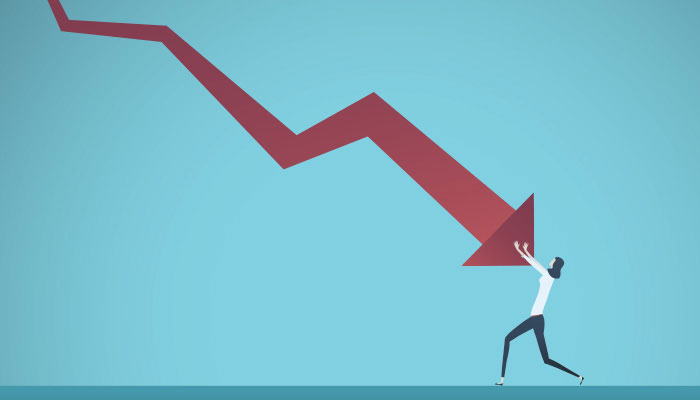Trending Track
A recession might be coming: Here's what it could be
Slowcession? Richcession? Or just recession?
Whether in the supermarket aisle, or the corporate suite, a lot of people are expecting a recession – even if there's no certainty there will be one at al but the question is if its going to be Slowcession? Richcession? Or just recession?
Survey after survey shows fears of recession are high. It's easy to see why.
The Federal Reserve is increasing interest rates in the most aggressive fashion since the early 1980s as it races to bring down inflation. And a recession is often the consequence when the central bank starts raising borrowing costs.
Even if the USA is headed into one, its worth keeping in mind that no two recessions are alike.
A recession could be blip-ish, like the short, pandemic-induced one in 2020, or more like the economic tsunami that followed the 2008 housing meltdown.
So, from recession with a small r to the so-called soft landing, here are some of the current predictions of what kind of economic slowdown the U.S. could be facing.
The recession with a small r
In a recent poll of economists, the World Economic Forum found that nearly two-thirds of the respondents believe there will be a recession in 2023.
But here's the good news: Many analysts expect a relatively mild and short recession, or what is sometimes referred to as recession with a small r.
Unlike the early 1980's, this time around the economy still appears to be reasonably resilient despite grappling with the highest inflation rate in around 40 years
A big reason is the health of the labor market. Yes, there have been high-profile layoffs at companies such as Google and Amazon recently. But those announcements were largely about paring back staff after these companies over-hired during the pandemic. In fact, the overall data still shows employers continue to hire.
Employers added 4.5 million jobs last year, marking a pretty spectacular comeback from the depths of the pandemic.
The 'slowcessation
Trying to come up with catchy terms to describe an event is something of a tradition in economics, though they rarely actually catch on, with a few exceptions such as "the Great Resignation" or "skimpflation" (which was coined in this newsletter).
Moody's Analytics is now giving it a try.
"Slowcessation" is a forecast that the economy will undergo a difficult period of almost no growth but will ultimately avoid an actual contraction. It's an argument that others also believe.
In a report laying out its thesis, Moody's argues that the economy still has plenty of things going for it, including healthy household finances, as well as strong corporate balance sheets.
Moody's believes those could help offset the economic consequences of raising interest rates, such as higher borrowing costs, lower economic growth, and more volatile financial markets.
The 'richcession'
This term was coined by the the Wall Street Journal columnist Justin Lahart.
"Richcession" refers to a recession or near-recession that impacts the rich more than lower-income folks. That would be unusual because recessions typically hurt the relatively less well-off the most.
Poor people are already suffering a major downturn but Lahart and others say that if we do slip into recession, lower-income workers may find themselves more insulated than in previous recessions.
The labour shortages however forced many businesses to boost wages to recruit the staff. Wage gains at the bottom of the income scale were proportionately larger than those at the top, although many workers' wage gains were partially eroded by inflation.
Wage gains at the bottom of the income scale were proportionately larger than those at the top, although many workers' wage gains were partially eroded by inflation.


















